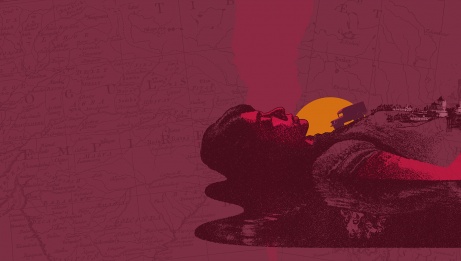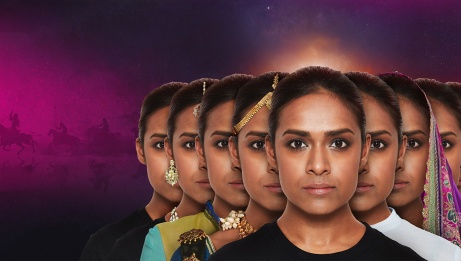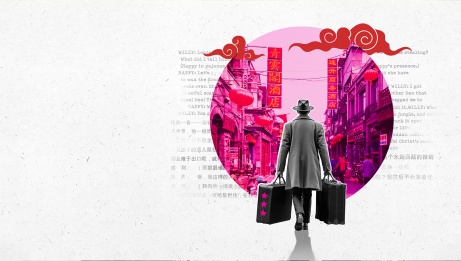
Trident Moon
“Trident Moon is perhaps one of the most necessary plays of the present time; it must be watched as a reminder of the past, an indication of the present and a warning about the future.” The Up Coming (UK)
- In-person event
- English
- Ages 17+
- ≈ 90 minutes · No intermission
A National Arts Centre English Theatre/Crow’s Theatre co-production
In August 1947, six women – three Muslim and three Hindu – hide in the back of a coal truck as it speeds through the turmoil of newly divided Hindustan. Alo, only recently their servant, now seeks revenge against her employers, even if it means endangering the child she’s raised. The conflict inside mirrors the chaos in the streets, but when the truck unexpectedly halts and a stranger breaks open the door, the women must suddenly unite to survive.
Trident Moon is a searing tale of families torn apart by religious violence, and women and children forced to summon unknown strengths in their quest for survival. Multi-award-winning playwright Anusree Roy paints a stark picture of India’s partition, thrusting us into its raw and ruthless aftermath. The result is an achingly beautiful story which unflinchingly confronts sectarian brutality with unexpected hope and resilience.
Audiences are taken on an extraordinary and harrowing journey, delving into the lives of women and children caught in the crossfire during a pivotal moment in world history.
Trident Moon was commissioned by Nightwood Theatre and premiered at the Finborough Theatre in London, UK, on the eve of the 70th anniversary of the Partition of India.
Content Advisory: Trident Moon is a gripping fictionalized portrayal of real historical events, centered around the survival story of a group of Hindu and Muslim women and young children caught up in the chaos of the 1947 partition of India. Due to the historical context of the play, physical and sexual violence towards women and children are both discussed and depicted onstage. There are also discussions around offstage violence, torture, and murder, with death being portrayed as well. Additionally, the play contains offensive language describing a character with a disability. This fictional story is based on historical events and remains relevant to the experiences of women and children in war around the world to this day.
- By Anusree Roy
- Director Nina Lee Aquino





